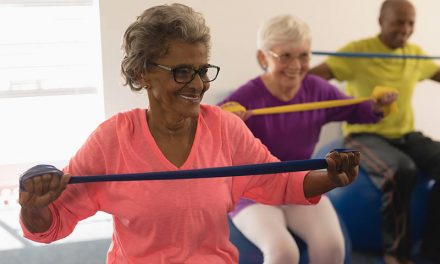Secrets to longevity – what are they?
Based on a 2022 estimate by the United Nations, there are more than half a million centenarians worldwide, and the numbers are growing. Within our Tafta residences, 100 birthday celebrations are becoming a regular occurrence. So, why are we living longer, and what are the secrets to longevity?
Every centenarian has his or her own theory – from the expected, “Exercise regularly and avoid alcohol,” to the quirky, “Eat ice cream and drink wine every day.”
Longevity and genetics
Obviously, genetics play a significant role. Just as we may inherit a propensity to develop certain illnesses from our parents, we can also inherit the longevity gene. If your parents lived into their 80s or 90s, you are more likely to enjoy a long life too.
And it helps to be a woman. Only about 15 percent of centenarians are men – against 85 percent women.
There’s also a high correlation between longevity and socioeconomic status. Again, no surprises there. People of means are likely to be more aware and have access to better nutrition and healthcare.
But still, there are many lifestyle choices and behaviours that are mentioned again and again in discussions about longevity. If you want to live well into your 80s and 90s these are some of the things you should do:
Keep working
This could be bad news if you can’t wait to retire and put your feet up. But continuing to work – especially if you love your job – can actually help you live longer.
Having to go to work provides really strong motivation to get up and get moving every morning. In addition, most work spaces offer opportunities for social interaction – another tick-box on the list of longevity behaviours.
But the most important reason to carry on working is that it keeps your brain active, which can delay the onset of cognitive diseases. Lifelong learning is one of the keys to longevity. Those who remain interested in everything around them, and live lives of purpose, are much more likely to make it to old age.
“I worked for my church and didn’t retire until I was 99,” says Margaret S. Even after she retired, she kept busy making jam and preserves for a local charity.
If you work for a company where retirement at a certain age is mandatory, plan to use some of your newfound spare time learning a new skill, or a ‘brain’ game such as chess or bridge.

Keep moving
Regular physical activity is another important key to long life. If nothing else, try to walk (or jog) every day. Instead of heading straight for the lift at the mall, take the stairs for an aerobic boost.
94-year-old Malcolm walks every day. “Apart from exercising your body, it also improves your mood,” he says.
If you watched Carte Blanche on 3 March you may have been inspired by the Limpopo ‘soccer grannies’ – women in their 70s and 80s who now have their own soccer World Cup challenge.
One of these grannies runs 21 km a day to keep fit for the team. But you don’t have to go to these lengths to benefit from exercise. Use a pedometer or smart watch to measure how many steps you take every day, and build on this. The recommended number of steps per day for optimum health is 10 000. But even if you only manage half towards that goal, it still helps … just start!
 Apart from walking, aim for some kind of strength training too, because it’s important to retain muscle strength as we get older. Resistance bands are great for building muscle in arms and legs, while chair pilates or yoga will improve your core strength.
Apart from walking, aim for some kind of strength training too, because it’s important to retain muscle strength as we get older. Resistance bands are great for building muscle in arms and legs, while chair pilates or yoga will improve your core strength.
Keep in touch
Humans are social beings – we thrive when we have regular contact with others. Spending time with family and friends – or going out and meeting new people – is another key to long life.
Family time is especially beneficial if you have grandchildren. They provide a window into the world they inhabit, which is vastly different from the childhood of people in their 80s or 90s. Try to maintain a close bond and listen to what they have to say.
If you don’t have close family, make the effort to keep in contact with old friends. Or go to places where you can meet new ones who share your interests. You could join a club or volunteer to help out at a local charity. Tafta has a number of wellness centres which provide activities and events that make socialising easy.
If you choose friends who live a healthy lifestyle, you can go for a walk together, and enjoy the twin benefits of social connection and healthy exercise.
Eat less – especially less meat
As we grow older, our metabolism slows down and we need fewer calories to maintain a healthy weight. Unless you are very active – and that includes doing your own housework, gardening, or looking after young children, you generally need to eat less.
Plant based, rather than meat heavy diets are also thought to promote longevity.
But would you want to live to 100 years old?
Many people shudder at the thought of living to a great age. After all, the older you get, the sicker you get, right?
According to Thomas Perls, a Boston University School of Medicine professor of geriatrics and director of BU’s New England Centenarian Study this is not the case.
“One would expect that everybody aged 100 and older would have a myriad of age-related diseases and be on death’s doorstep,” he said.
“But the first few centenarians I got to meet as a geriatrics fellow did not fit that bill at all – they were among my healthiest patients actually.
“One lady Celia was 102 and she was never around when I went to visit the assisted living facility where she lived. I thought maybe she was at the doctors. But no, she was out playing piano at all kinds of gigs.”
It seems that having fun and a positive outlook on life could also be factors in determining how long you live!







 Concern and confusion over SASSA Old Age Grant payments
Concern and confusion over SASSA Old Age Grant payments Vote for us in the KZN Top Brand Award
Vote for us in the KZN Top Brand Award Men’s health – signs older men shouldn’t ignore
Men’s health – signs older men shouldn’t ignore Tafta commemorates Elder Abuse Awareness Day – staff say ‘No’ to elder abuse
Tafta commemorates Elder Abuse Awareness Day – staff say ‘No’ to elder abuse Elder Abuse – it’s not always what you think
Elder Abuse – it’s not always what you think Holiday fun that doesn’t break the bank – inexpensive activities for grandparents
Holiday fun that doesn’t break the bank – inexpensive activities for grandparents Old school ‘Granny Crafts’ promote mental health
Old school ‘Granny Crafts’ promote mental health Tafta Golf Day at Cotswold, a swinging success!
Tafta Golf Day at Cotswold, a swinging success! Come visit us – Tafta Open Days this May!
Come visit us – Tafta Open Days this May! Sleep Quantity vs. Sleep Quality – what matters most for healthy ageing?
Sleep Quantity vs. Sleep Quality – what matters most for healthy ageing?